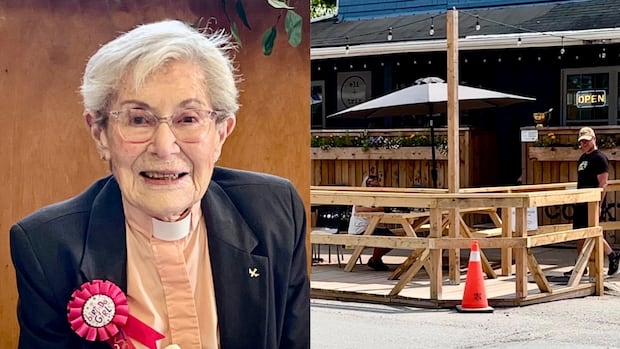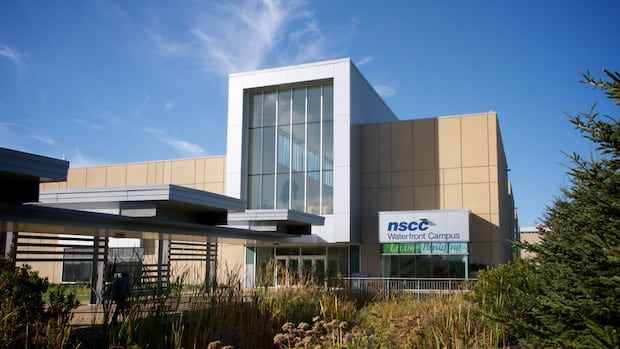Paddoboer NS took too much of its own product: ‘I killed myself’

It sounded like a wild party was going on in Clayton Park, but when the police showed up, it was a party of one.
The superintendent of a Chadwick Place building called the police about 25 minutes before midnight on March 10 and complained about the noise coming from a third-floor apartment.
“The caller heard screaming and banging coming from the apartment, and he wasn’t sure how many people were inside,” Halifax Regional Police Det.-Const. Jeff Patriquin said in his search warrant application in the case.
The police told police it was a man’s voice.
“He heard a male voice yelling from inside the unit, ‘I killed myself. Have you ever heard of anyone committing suicide,” said Patriquin.
The super could hear the banging on the walls, the detective said.
“It sounded like things were being thrown.”
When police knocked on the door and called for the resident, they heard more popping noises coming from the apartment.
‘Weird facial expressions’
Then a 41-year-old man opened the door.
He “sweats profusely,” Patriquin said.
The man’s complexion was pink and his pupils were fully dilated; (he) was shaking and making weird facial expressions,” Patriquin said.
When an officer asked the man if he had ingested or smoked anything that night, he replied, “Yeah, shrooms, too many.”
He invited officers in, where they saw plastic boxes in a bedroom that were “described as damp inside, on top of a dresser,” Patriquin said.
‘Different levels’
There were also three similar clear plastic containers “with growth of what appeared to be psilocybin, described in various stages of growth from ‘very small buds’ to 2cm stems.”
In a small room next to the bathroom, police saw “mycelium (mold) in about 50 small sealed plastic containers, blue and brown in color,” the detective said.
“In the same room (they saw) 28 glass jars of grains that ‘appeared to be in various stages of spawning,'” Patriquin said.
In a walk-in closet, police saw “a large bag of grains, with about 7 kg left in it, and trays from a drying room,” he said.
In an almost empty bedroom, a food dehydrator sat on a chair, the detective said.
Ambulance personnel arrived at the scene and took the man to hospital.
‘No history with the police’
Police left the apartment at 12:42 a.m
“Since that time, HRP officers have secured the scene, while police waited outside the apartment for a warrant to enter,” said Patriquin.
The detective queried the man’s name in two databases only to find that he “had no history with the police.”
Patriquin convinced a justice of the peace to issue a search warrant for the apartment and said he was looking for signs of drug trafficking, including digital scales, cell phones, cash, score forms, bulk drugs, packaging to divide them into smaller quantities for resale, and personal data to prove that the man actually lived in the apartment.
“It is common for drug traffickers to live with other people listed on the lease or property, but there are often personal documents including the name of the drug trafficker and the address of the place being searched or to verify the ownership of other properties evidence,” said the investigator. said in information to obtain a warrant filed with Halifax Provincial Court.
No costs
During their March 11 search, the Halifax Regional Police seized 1,226 grams of psilocybin mushrooms from the apartment.
“The investigation has been closed without charge,” said Const. John MacLeod, speaking on behalf of the police, said in an email Friday.
Growing magic mushrooms isn’t difficult, says Keith J. Williams, a mycologist and ethnobotanist who lives in the Annapolis Valley.
“If you have a little bit of scientific knowledge and if you’re meticulous in your attention to detail, it’s not that hard,” Williams said.
The man police caught growing magic mushrooms in Clayton Park was likely growing a strain called Psilocybe Cubensis, he said.
During the fall in Nova Scotia, people choose a different species, psilocybe semilanceata, more commonly known as the Liberty Cap, Williams said. “It is not suitable for cultivation.”
More powerful
The wild mushrooms found here are typically more potent than cubensis, he said. “But it’s difficult to grow and they’re very small little fruiting bodies, so the yields would be quite low. And if you pick them outside, there’s a risk of misidentification and poisoning.”
Growing magic mushrooms would have been much more difficult 10 or 15 years ago, he said.
“But now there are companies that sell sprayers and other products that allow you to skip the most challenging steps in mushroom growing that require the most scientific expertise,” Williams said.
Magic mushrooms can cause visual and auditory hallucinations, he said, noting that the effects can last up to eight hours.
‘Mystical experience’
“Psychologically, people often experience things like a greater sense of connection to nature, especially plants,” Williams said.
“Ego dissolution occurs at higher doses, which is a feature of what many religious scholars describe as the mystical experience.”
Although magic mushrooms are still considered an illegal substance in Canada, pharmacies have been openly selling them in Ottawa and Vancouver for a year, Williams said.
“Probably that’s because of the shifting public perception around psychedelics and their efficacy for addressing treatment-resistant depression, anxiety,[post-traumatic stress disorder]and alcohol abuse.”
Demand is growing
The demand for magic mushrooms is growing, says Erika Dyck, a psychedelic historian and Canada Research Chair in the history of medicine at the University of Saskatchewan.
She noted that magic mushrooms keep popping up repeatedly in film and television scripts due to their popularity.
“As it’s becoming known, people want to try it and the market doesn’t really exist in a legal way right now,” Dyck said.
“I predict you’ll see more people like (the guy in Clayton Park) growing them at home, and this could be a symptom of that kind of policy gap that we live in.”
The U.S. Federal Drug Administration has declared psilocybin mushrooms to be part of a breakthrough therapy for major depression, Dyck said.
‘Parallels with cannabis’
“There are some parallels with cannabis,” she said. “I don’t think psychedelics are on the same path as cannabis. But we may have seen the kind of medicalization of cannabis as a gateway to opening up that legalization more widely.”
Proponents argue that psychedelics, accompanied by psychotherapy, allow veterans and first responders with PTSD to “relive those traumatic experiences in a safe place,” Dyck said. “And it’s the equivalent of eight to 10 years of psychotherapy.”
Magic mushrooms are not a “magic bullet,” she warned.
“But right now it’s really being touted as something outside the mainstream.”
Dyck isn’t sure the Canadians are ready to turn the corner on legalizing psychedelics.
“Parliamentarians and regulators will want much, much more evidence of the efficacy of these substances before we declare them benign enough to sell at 7-Eleven,” she said.



